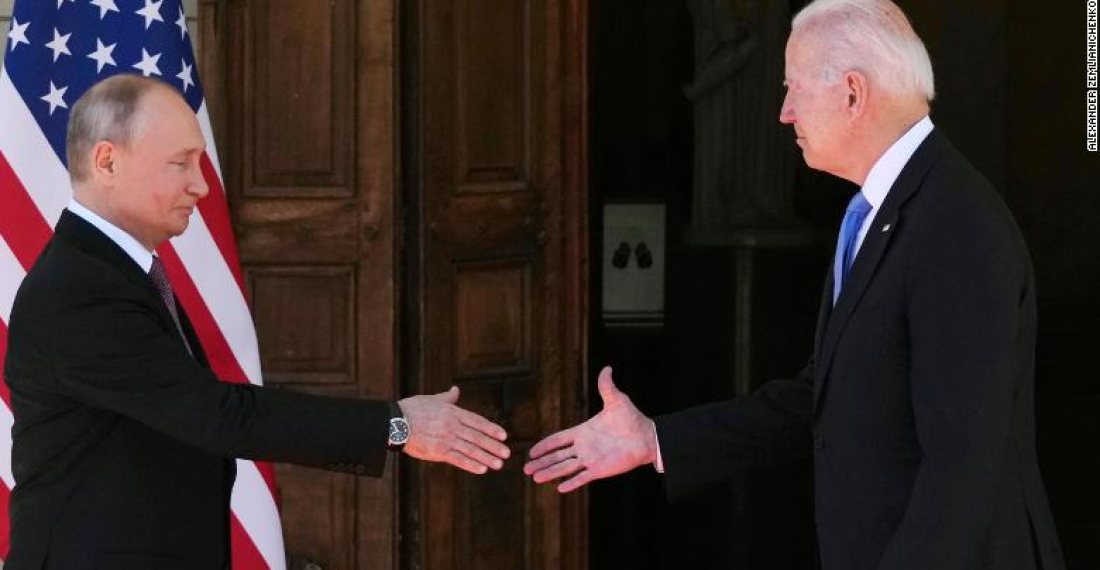US President Joe Biden and Russian President Vladimir Putin have committed to nuclear arms control and reaffirmed that a nuclear war cannot be won and must never be fought.
The leaders' first in-person meeting since Biden became president took place at a lakeside villa in Geneva.
As talks ended after less than the five hours the sides thought they would need, Biden gave a thumbs up. Members of the US team said the meeting had been "quite successful".
The joint US-Russian statement said progress on shared goals could be achieved, "even in periods of tension". The statement in full says:
We, President of the United States of America Joseph R. Biden and President of the Russian Federation Vladimir Putin, note the United States and Russia have demonstrated that, even in periods of tension, they are able to make progress on our shared goals of ensuring predictability in the strategic sphere, reducing the risk of armed conflicts and the threat of nuclear war.
The recent extension of the New START Treaty exemplifies our commitment to nuclear arms control. Today, we reaffirm the principle that a nuclear war cannot be won and must never be fought.
Consistent with these goals, the United States and Russia will embark together on an integrated bilateral Strategic Stability Dialogue in the near future that will be deliberate and robust. Through this Dialogue, we seek to lay the groundwork for future arms control and risk reduction measures.
The Moscow correspondent of the German broadcaster, Deutsche Welle, Emily Sherwin, said, "Biden managed to walk a fine line with Putin," recognising Russia's desire to be seen as a major geopolitical power.
For Biden, the summit with the Russian president was the last engagement in a busy European trip.
Biden summarised the significance of the trip, saying:
"Over this last week, I believe, I hope, that the United States has shown the world that we are back, standing with our allies. We rallied our fellow democracies to make concerted commitments to take on the biggest challenges our world faces. And now, we have established a clear basis on how we intend to deal with Russia and the US-Russia relationship. There's lots more work ahead. I'm not suggesting any of this is done. We've gotten a lot of business done on this trip."







